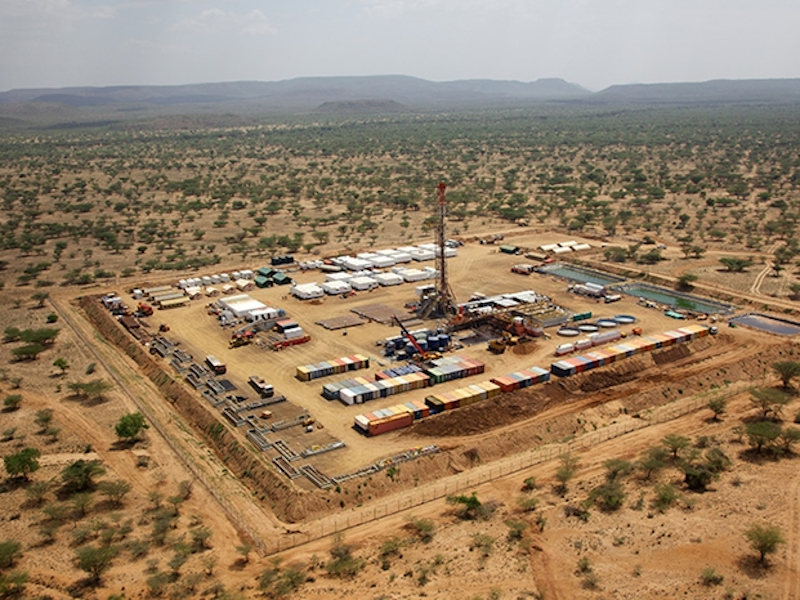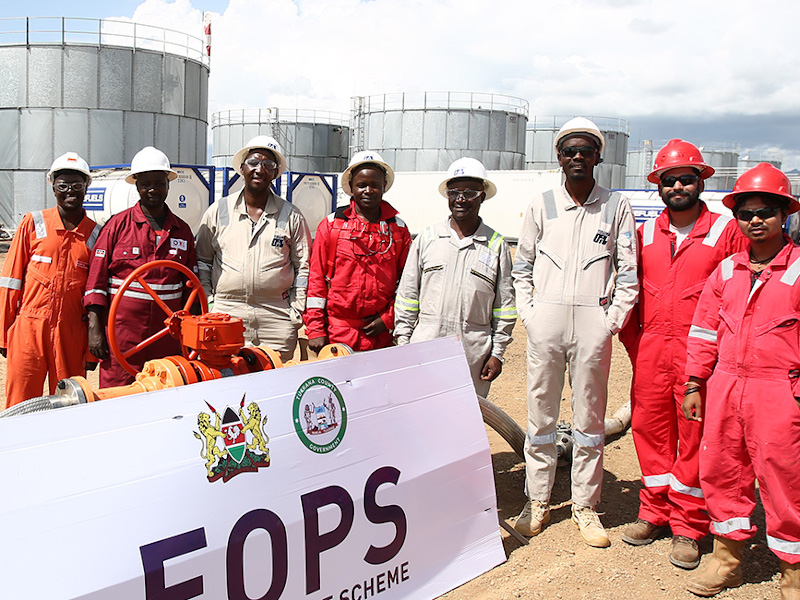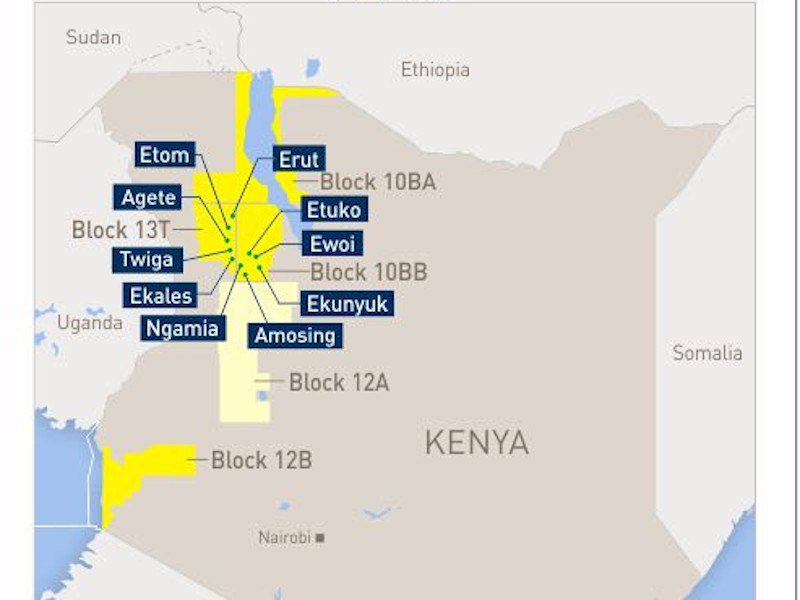The South Lokichar onshore oil project, also known as Project Oil Kenya, located in the Turkana County of Kenya will be the first major upstream oil project in the East African country.
Anglo-Irish oil and gas exploration company Tullow Oil holds a 50% stake and is the operator of the project, while Total and Africa Oil hold a 25% stake each.
The entire South Lokichar basin is believed to hold up to four billion barrels of oil resources, while the project, in stage one development, targets the Amosing, Ngamia and Twiga fields within the basin that are estimated to contain up to 560 million barrels of oil resources.
A pre-commercial early production facility for the South Lokichar oil project was commissioned in June 2018 and it reached 2,000 barrels per day (bpd) production capacity in May 2019.
Project Gallery
-

South Lokichar will be the first major upstream oil development in Kenya. Image courtesy of Tullow Oil.
-

The pre-commercial pilot oil production at South Lokichar started June 2018. Image courtesy of Tullow Oil.
-

The Amosing, Ngamia and Twiga fields are being developed as part of the South Lokichar stage one project. Image courtesy of Tullow Oil.
The front-end engineering and design (FEED) works for the phase one commercial development along with the associated export pipeline were completed in 2019, while a final investment decision (FID) on the £2.4bn ($3bn) project is expected in the second half of 2020.
Scheduled to come on stream in 2023, the South Lokichar project is expected to produce up to 80,000bpd of crude oil in stage one.
Location and field details
The South Lokichar project covers approximately 1,085ha in the Turkana County, in north-west Kenya, approximately 450km north of Nairobi. The government of Kenya started the land acquisition process for the project in 2019.
The Amosing, Ngamia and Twiga fields being developed in stage one are located in blocks 10BB and 13T of the South Lokichar Basin. Tullow conducted seismic surveys, exploration, and appraisal campaign in these blocks during 2011 and 2015. The Ngamia-1 wildcat well encountered oil in 2012.
Early oil pilot scheme at South Lokichar
The early oil pilot scheme (EOPS) involves limited production of oil at South Lokichar before the start of commercial-scale production.
As part of the EOPS, crude oil produced during the extended well testing in the testing and appraisal phase was stored and transported by tankers.
In the post-appraisal phase, Tullow Oil has been producing limited quantities of crude oil from Amosing and Ngamia fields which is transported by road to the coastal city Mombasa.
The EOPS was officially launched in June 2018, while the production rate reached 2,000bpd in May 2019.
The first-ever crude oil export shipment from the project took place at the Mombasa Port in August 2019.
The early oil production facilities will be decommissioned before the start of the main construction activities on the commercial-scale project.
South Lokichar foundation stage development
The foundation stage development (FSD) of the project involves a total of 33 well pads and 321 wells at the Amosing, Ngamia, and the Twiga oil fields.
Out of the 33 well pads, 12 are existing well pads developed during the exploration, appraisal, and early oil pilot scheme activities.
The Ngami field is planned to be developed with 230 wells through 22 well pads, while the Amosing and the Twiga fields are planned to be developed with 81 wells and 10 wells through nine and two well pads respectively.
The well flows from the fields will be sent to a central processing facility for the separation of oil, water, and gas. Water will be injected into wells to maintain reservoir pressure, while the gas will be used as the fuel for two on-site gas-turbine generators of 24MW capacity each. The project will also receive additional water from the Turkwel dam through a 90-km long underground pipeline.
The plateau production rate of the foundation stage development project will range from 60,000bpd to 80,000bpd of crude oil.
Lokichar to Lamu crude oil pipeline
The crude output of the onshore oil project is proposed to be transported to the Lamu Port in Kenya through an 824km-long and 18in-diameter underground oil export pipeline.
The pipeline will involve two pump stations and a pressure reduction station. It will pass through six counties namely, Turkana, Samburu, Isiolo, Meru, Garrisa, and Lamu. The oil delivered by the pipeline is proposed to be stored in a floating storage and offloading vessel (FSO) at the Lamu Port.
Contracts awarded
WorleyParsons was awarded the front-end engineering and design (FEED) contract for the central processing facility to be developed as part of the foundation stage of the South Lokichar project, in May 2018.
Wood Group received the FEED contract for the proposed Lokichar to Lamu crude oil pipeline in the same month.
